Sebastian Quistorff
PrologSebastian Quistorff
PrologMathias Haugaard
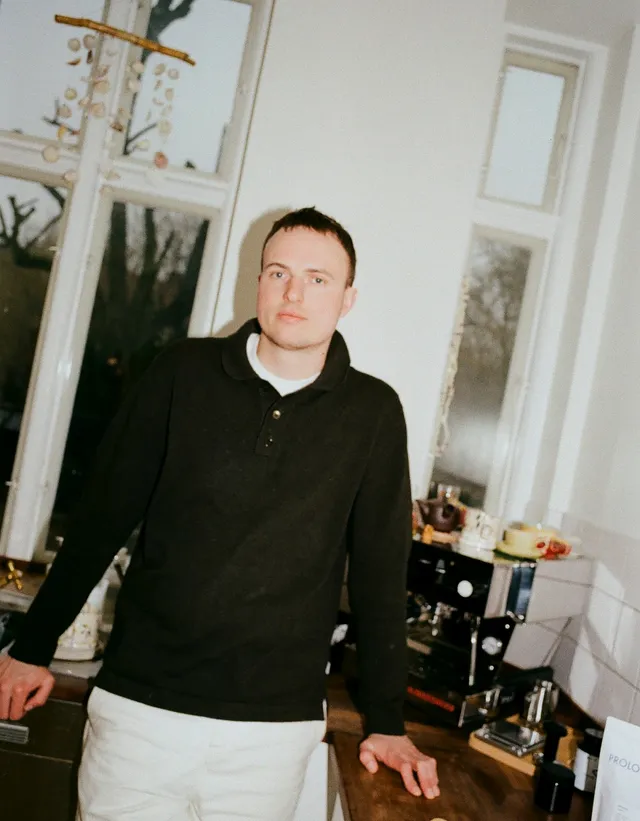
Q
Can you start by introducing yourself?
A
“My name is Sebastian, and I am 32 years old. I am the co-founder of Prolog Coffee, a small coffee company in Copenhagen.
My role is mainly focused on branding and communication, as well as working with the entire guest experience. I am completely hands-on, standing behind the bar and greeting guests to get a feel for the whole thing. So it is very communicative, but it is also on a low practical level. I also have a close relationship with some of the farms that we work with.
I have studied and worked with graphic design, and also worked in the French bistro Melee. My coffee journey started in 2011 at Emmerys Bakery, where I was in charge of the coffee program and trained new employees. Eventually, I became the brand director at 24 years old, responsible for 26 stores.
I inherited a love for high-quality products like wine and cheese from my father. As I grew older, I became more interested in these things and eventually developed a passion for coffee. It was the craftsmanship and geeky aspects of coffee that caught my attention.”
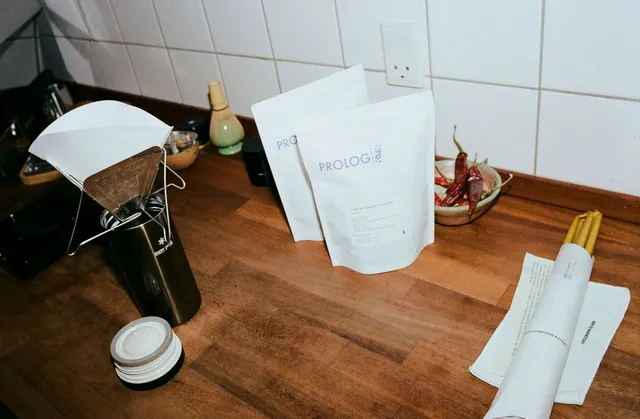
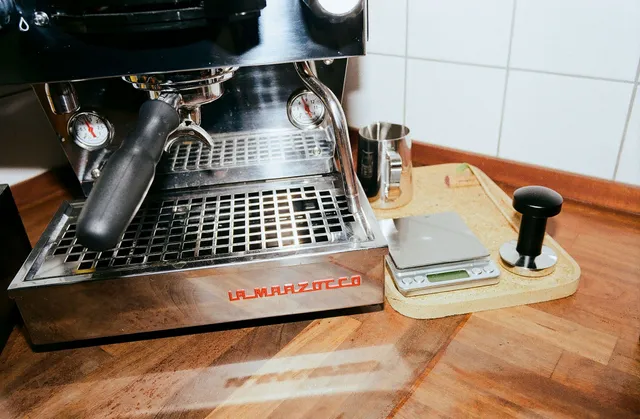
Q
What is Prolog?
A
“Prolog is a small coffee company that we opened in 2016. Here, we serve specialty coffee from all over the world and have two coffee bars, one located in Østerbro and the other in Kødbyen (The Meatpacking District) in Vesterbro. Additionally, we have a roastery.
At our coffee bar, we want to create an experience that awakens your senses and makes you feel like you’re on a “coffee high” every time you walk through our doors. Most importantly, we want you to feel welcome and at home. That’s why we keep things relaxed and down-to-earth, and we even play a quirky French radio station instead of the usual generic playlists. We acknowledge it’s not for everyone, but for us, it’s all about enhancing your quality of life.
When we were choosing a name for our company, we wanted it to be easily understood in multiple languages. The name “Prolog” originally means “introduction,” and since it was our first project, it just made perfect sense.”
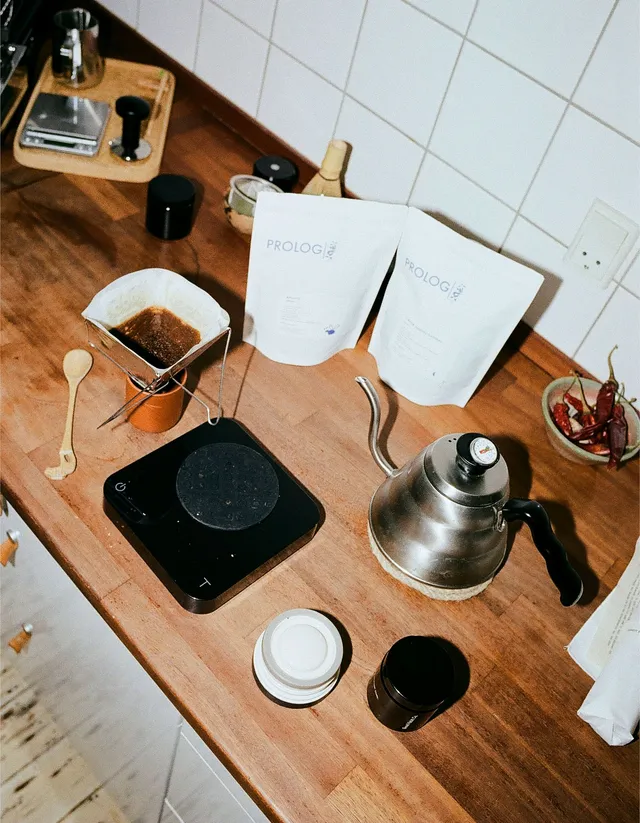
Q
What is coffee, and what does it consist of?
A
“Coffee is a berry that grows in non-european latitudes. It comes from a tree, and inside this berry, there is a coffee bean, which then can be processed through drying. And when it has reached a certain drying percentage then you can roast it, brew it and then get coffee out of it.
In terms of the coffee we work with, it’s like working with wine. The grapevines care a lot about their vines, while we care about the coffee trees. That they’re getting the right nutrition, and they are composted and harvested properly at the right time, so that the berries are ripe.
There are also different processing methods to make the coffee taste good, or how the coffee farmers want the coffee to taste. It can be dried with pulp so that it becomes natural, and you can wash the pulp off with water so it becomes a washed coffee. You can also put it in big barrels without oxygen, and then it’s an anaerobically fermented coffee. There are tons of options.”
Q
What sets Prolog apart from other coffee bars?
A
“Well, as I said, we always want to provide a better coffee experience than you can usually get. Coffee is our tool to provide something that we think is unique. If we were only passionate about coffee then it would be very stereotypical, and it wouldn’t make as much sense with who we are as people. Obviously, we geek out about coffee and we’re passionate about what we serve, but the whole foundation is about making people feel welcome.
We also work a lot with sustainability. We have this project called Zero Waste, which is about minimizing waste, but it’s not about the end result. It’s a process for us, which is also the mindset we have; not making ourselves self-righteous. Sustainability also includes fairness. For instance, it’s important for us that we pay the coffee farmers properly, so they can have a decent living. Actually, our head roaster has just been to Costa Rica and El Salvador to visit some of the farms that we work with.”
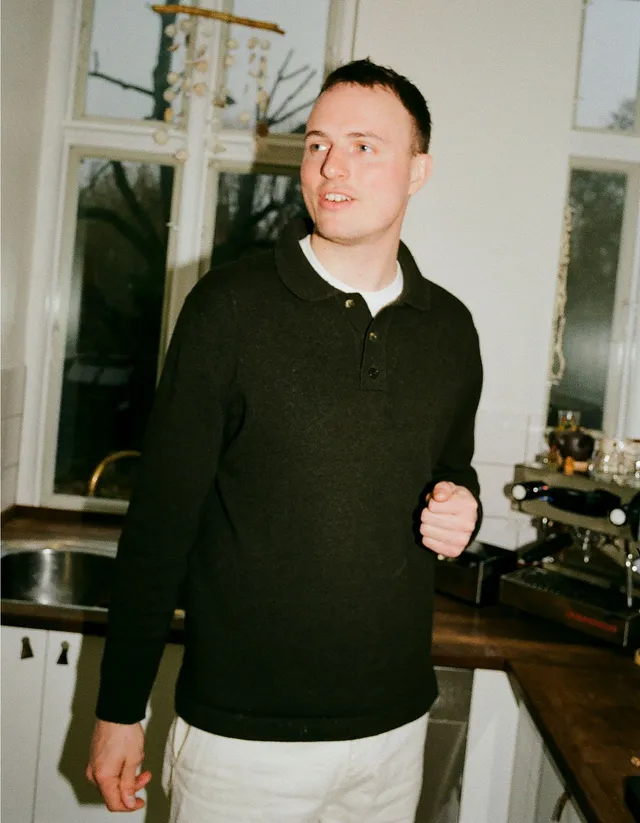
Q
What are the best tips to brew a better cup of coffee?
A
“Always start with good coffee beans. Pay attention to the quality and be willing to spend a little more. You should also get a scale to control the brew and a grinder, and then you’re good to go.
The method of brewing depends on your preference, whether it’s in a kettle or on a filter. You don’t need to buy an expensive La Marzocco; a simpler device will do. Again, it’s all about quality, so taking a bit longer is usually worth it. It also makes you appreciate it more, and you don’t drink it as quickly. You might need to open your mind a bit more and accept that it doesn’t have to be so fast.
One last thing: Don’t buy coffee beans from the supermarket. Nothing from the supermarket tastes good, in my opinion. Buying coffee beans from specialty stores can also broaden your horizons and help you discover new flavors. Don’t limit yourself to supermarket coffee, as exploring different options can be a rewarding experience.”Ditch the convenience, hop on your bike, and come to Prolog.”